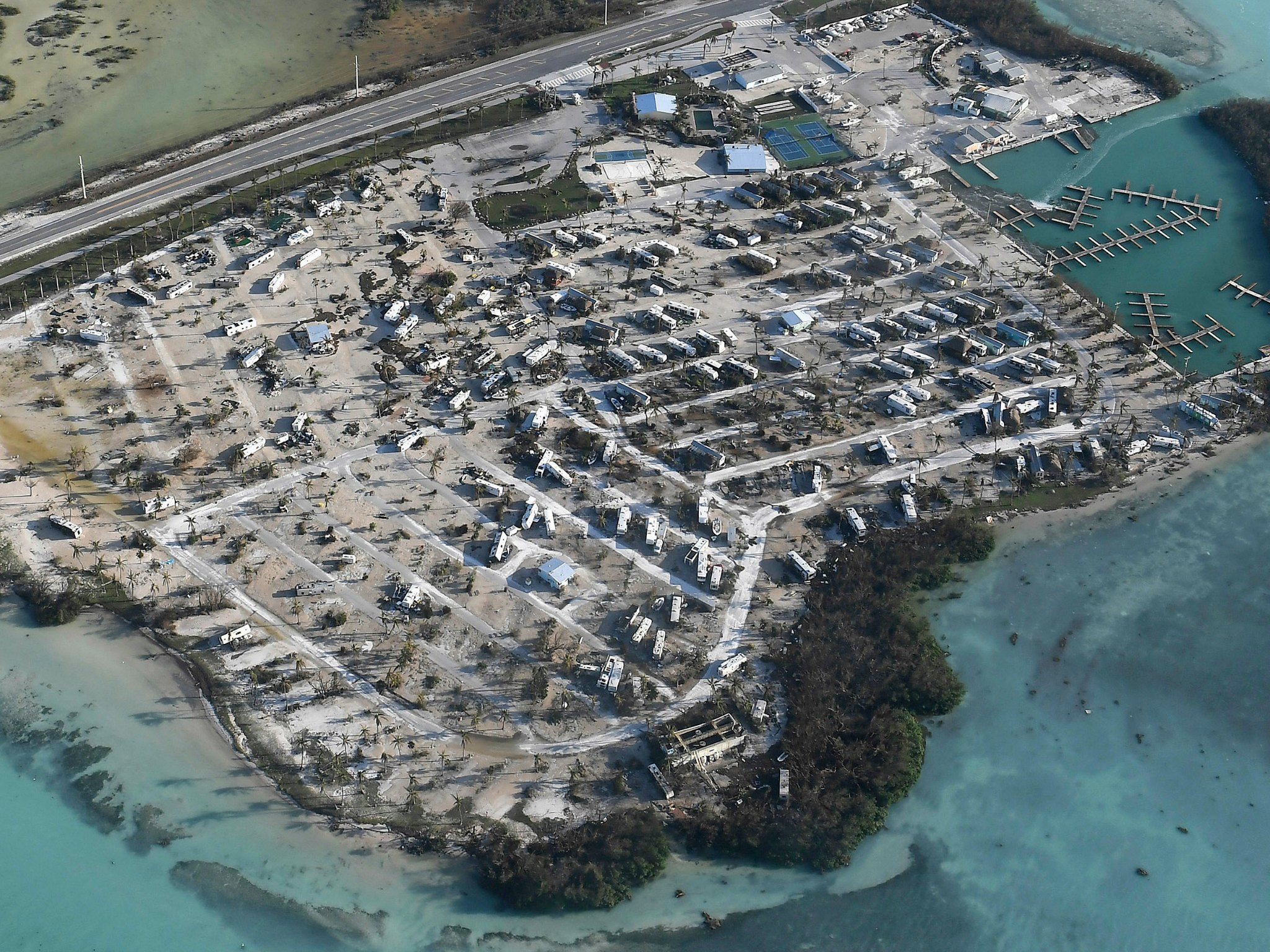Irma: Searches underway as residents return to Florida Keys looking to rebuild their lives
'We've got a lot of work to do, but everybody's going to come together,' Florida Gov. Rick Scott says

Search-and-rescue teams have made their way into the Florida Keys' farthest reaches, with crews labouring to repair the single washed-out highway connecting the islands and rush aid to Hurricane Irma's victims. Federal officials estimated one-quarter of all homes in the Keys were destroyed.
Two days after Irma roared into the island chain with 130 mph winds, residents were allowed to return to the parts of the Keys closest to Florida's mainland. But the full extent of the death and destruction there remained a question mark because communications and access were cut off in places.
“It's going to be pretty hard for those coming home,” said Petrona Hernandez, whose concrete home on Plantation Key with 35-foot walls was unscathed, unlike others a few blocks away. “It's going to be devastating to them.”
Elsewhere in Florida, life inched closer to normal, with some flights again taking off, many curfews lifted and major theme parks reopening.
“We've got a lot of work to do, but everybody's going to come together,” Florida Gov. Rick Scott said. “We're going to get this state rebuilt. This state is a state of strong resilient people.”
Irma's rainy remnants, meanwhile, pushed through Alabama and Mississippi after drenching Georgia. Flash-flood watches and warnings were issued around the Southeast.
While nearly all of Florida was engulfed by the 400-mile-wide storm, the Keys appeared to be the hardest hit. Drinking water was cut off, all three of the islands' hospitals were closed, and the supply of gas was extremely limited.
Officials said it was not known how many people ignored evacuation orders to stay behind in the Keys.
Federal Emergency Management Agency administrator Brock Long said that while the assessment of damage was constantly changing, preliminary estimates suggested that 25 percent of the homes in the Keys were destroyed and 65 percent sustained major damage.
“Basically every house in the Keys was impacted,” he said.
An aircraft carrier was positioned off Key West to help in the search-and-rescue effort. And crews worked to repair two washed-out, 300-foot sections of U.S. 1, the lone highway from the mainland, and check the safety of the 42 bridges linking the islands.
Authorities stopped people and checked for documentation such as proof of residency or business ownership before allowing them back into the Upper Keys, including Key Largo, Tavernier and Islamorada.

The Lower Keys — including the chain's most distant and most populous island, Key West, with 27,000 people — were still off-limits, with a roadblock in place where the road was washed out.
Corey Smith, a UPS driver who rode out the hurricane in Key Largo, said it was a relief that many buildings on the island escaped major damage. But he said conditions were still not good, with branches blocking roads and supermarkets closed.
“They're shoving people back to a place with no resources,” he said by telephone. “It's just going to get crazy pretty quick.”
Lower Keys resident Leyla Nedin said she doesn't plan to return any time soon to her home near where Irma came ashore on Cudjoe Key.
“We are still without water, power, sewer, gas and cell service,” she said. “My concern is that even if we get to go in to the Lower Keys, our fragile infrastructure could be even more compromised.”
Elsewhere, in the clutch of Ceribbean islands hit hardest before it reached the US mainlain, French President Emmanuel Macron vowed to quickly rebuild French territories during a visit meant to dispel anger at his government's response to Hurricane Irma, which killed at least dozens across the region.
Mr Macron denied French authorities were too slow to react to the damage suffered mainly by overseas territories belonging to Britain, France and the Netherlands, whose tens of thousands of residents are European Union citizens.

European countries and the United States - responding to damage on the US Virgin Islands - have sent troops to deliver aid and provide security after the storm toppled homes and hospitals, but locals and tourists short of food or shelter say help was slow to arrive.
Britain was forced to reinforce its marines on the British Virgin Islands after more than 100 “very serious” prisoners escaped after a prison was breached in the storm, Alan Duncan, Britain's minister for Europe and the Americas said on Tuesday.
Macron was due to travel on to St. Martin, an island France shares with the Netherlands that suffered some of the worst devastation and deaths from Irma.
“St. Martin will be reborn, I promise,” Mr Macron told reporters in Pointe-a-Pitre, on the French island of Guadeloupe. “I will shake up all the rules and procedures so the job is done as quickly as possible. It will be done quickly, it will be done well, and it will be done better,” he said.
British Foreign Secretary Boris Johnson also travelled to the Caribbean to visit British territories devastated by Irma. Among the hardest hit islands were the British Virgin Islands, Anguilla, plus Antigua and Barbuda.
“He is very keen to see for himself the devastation, to reassure governors who have done a magnificent job under quite the most incredible pressure,” Mr Duncan said.
Associated Press and Reuters
Join our commenting forum
Join thought-provoking conversations, follow other Independent readers and see their replies
Comments
Bookmark popover
Removed from bookmarks